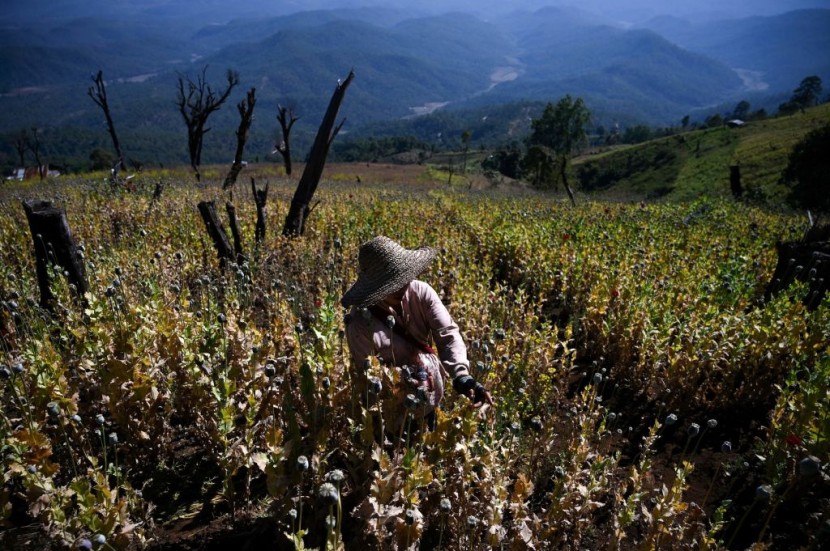Myanmar has surpassed Afghanistan as the world's leading opium producer due to the Taliban government's crackdown on the trade.
The newest report from the United Nations Office on Drugs and Crime (UNODC) estimates that Myanmar generated 1,080 metric tons of opium this year. Notably, opium is a key ingredient in heroin.

Amid Afghanistan's Poppy Cultivation Ban
Following the Taliban's prohibition on poppy planting in April of last year, opium output in Afghanistan fell by an estimated 95% to about 330 metric tons, as reported by UNODC.
Bordering Myanmar, Laos, and Thailand, the so-called "Golden Triangle" has a long history of being a hub for the illicit manufacturing and trade of narcotics like opium and methamphetamine.
According to the UNODC, Myanmar's "opiate economy" was valued at $1 billion to $2.4 billion in total in 2022, which is 1.7% to 4.1% of the country's gross domestic product (GDP). It said the country produced almost 790 metric tons of opium last year.
Since the military took control in 2021, the legal economy of Myanmar has been devastated by fighting and instability, which has forced many farmers to turn to growing poppies as a means to make a living.
A number of factors were cited in the research, including high inflation, limited access to state infrastructure and markets, and farmers' plans to grow more poppy in late 2022. UNODC said poppy farming in Myanmar is becoming more advanced as a result of greater investment and better procedures, such as better irrigation and the potential use of fertilizers, which are increasing crop yields.
After Taliban leaders pledged to put a stop to illicit drug production, cultivation collapsed in Afghanistan, the world's largest producer for a while. Last year, the value of the country's agricultural output was nearly entirely driven by poppy harvests. However, the area dedicated to poppy cultivation decreased from 233,000 hectares in late 2022 to 10,800 in 2023.
Surge in Myanmar's Poppy Cultivation
In Myanmar, Shan State is where most of the farming takes place, The Guardian reported. However, the state's northern region has been rocked by violence in the last several weeks as a coalition of minority armed groups attacked the junta and its supporters.
The UN has identified this state as the principal supplier of methamphetamine in Southeast Asia, and large portions of the country are under the control of several ethnic armed groups that have access to tens of thousands of armed fighters.
The UN also saw an uptick in cultivation in Chin state, which borders India, and northern Kachin state.
The military, which deposed an elected administration and took control in 2021, is reportedly not committed to stopping the multi-billion dollar trade, analysts told The Guardian. The head of Myanmar's Central Committee on Drug Abuse Control made the unprecedented admission earlier this year that their attempts to suppress the trade were fruitless.
© 2026 HNGN, All rights reserved. Do not reproduce without permission.








